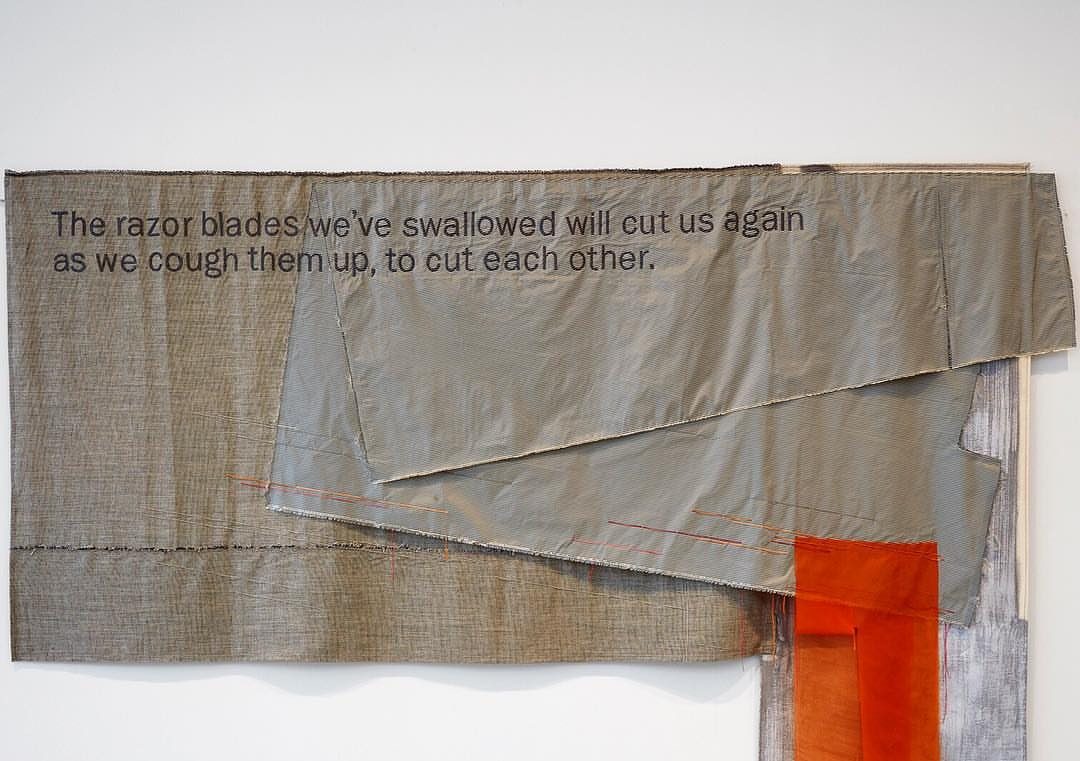banner image: Tuesday Smillie, Again, 2017
UMD’s general policies can be found at this link. The text below is a supplement to these policies and describes the principles I aim to follow in the practice of classroom world building.
Accessibility
I aspire to the principles of universal design, which state that
maximizing accessibility for participants with disabilities improves
learning environments for everyone. I try to minimize barriers posed by
course structures and materials, and I will do my best to work with any
student who requires specific accommodations for a disability even if it
is not formally documented. Please let me know about any access needs
as soon as you can, even if you aren’t sure how accommodations will work
in the context of this class; I will work with you to figure out the
best way of doing things. I promise to keep any details you share with
me in confidence.
If you are facing barriers to participation for a reason other than disability, such as family commitments or financial problems, please also let me know. I may be able to suggest resources or adjustments to help.
A note on discussion
Racist, sexist, homophobic, transphobic, ableist, and other abusive language is never acceptable in class discussion, in person or online. Yet we cannot discuss the history, practice, and necessity of feminisms without encountering such language, nor can we assume that we will share the same definitions, expectations, and attitudes toward it. We should try together to make sure that a spirit of openness characterizes the way we engage with one another’s contributions in the classroom and online – even as we pay close attention to the flows of power and privilege among and through our bodies. This should not mean ignoring offensive or hurtful words and actions, or hesitating to call out problems when you see them. It should, though, mean working from an assumption of collaboration rather than confrontation and appreciating both that discomfort is a necessary part of learning and that we are all in a state of constant change. In other words, what we say does not define who we are. If you are concerned that forms of unproductive discomfort or problematic power dynamics are emerging in our classroom, please speak to me as soon as you can; I will do all that I can to implement a change.
A note on reading
The texts we will read in this class will challenge you in various ways, as they should. Some texts will make you angry, whether because of their content or their style; some texts will mystify you; some texts will make you fall in love. Those emotional and political responses are important and should not be set aside. Nevertheless, our aim as scholars in this class should be to engage in a spirit of openness, giving each author the gift of a complex engagement that goes deeper than either agreement or disagreement. Attend to your initial response, but set it aside if you need to in order to read both critically and generously. How is this project shaped by its origins, location, and investments? What can you learn from it? If something seems to you to be missing, how would the project become different if it were included?
A note on content
It is likely that many of our readings, as well as images and media shown in class by the professor or student presenters, will discuss and depict individual and collective violence and trauma. Feminist knowledge cannot be engaged without discussions and depictions of sexism, homophobia, transphobia, racism, and forms of racialized and gendered violence that include but are not restricted to sexual assault, medical trauma, and abusive language. It’s possible that some of us will have responses to some of this material that will make it difficult to be fully present in class. I will do my best to give advance notice when course media contains common psychological triggers, especially graphic depictions of physical violence, racialized violence, self harm and suicide, or sexual abuse. On the syllabus, content notes for media and fiction are provided in text that can be seen upon highlighting. I have not sought to provide content notes for discussion of these areas in scholarly or activist writings both because these themes are so pervasive in our readings and because analytical discussion tends to be less visceral and more likely to be signaled in advance. We will discuss this decision as a class on the first day. I cannot promise to be infallible in identifying potentially triggering material; if you know that you require advance notice about particular content, please let me know privately so that I can make my best effort to meet your access need.
You are always free to step out of the classroom with no questions asked, for any reason. If you think you might need to stay away from class due to the material being discussed, email me and we will discuss the best way for you to access and respond to material. Note that being triggered and being made uncomfortable by class material are very different things; I will not provide content notes for adult themes and content more generally without a specific request. If you are uncertain what to make of your reactions to anything we cover in the course, I encourage you to talk about it with a therapist at the Counseling Center.

